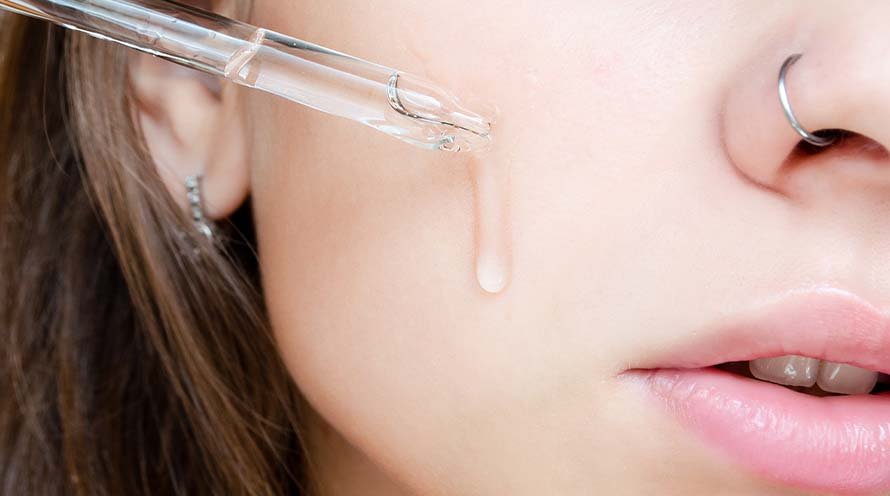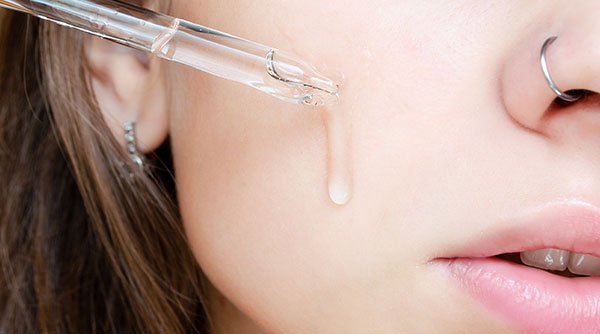Should I use hyaluronic acid for dry skin?
Are you tired of battling flaky, tight, and uncomfortable skin? Caring for dry skin can be a challenge, especially when it comes to finding the right ingredients that offer deep hydration without making your skin greasy. But here’s some good news: Using hyaluronic acid for dry skin might be just the solution you’ve been searching for. Loved by skincare experts and enthusiasts alike, hyaluronic acid is good for dry skin as it acts like a moisture magnet, drawing water into the skin and locking it in. Ready to learn more about this skincare hero? Let’s explore how hyaluronic acid and dry skin make the perfect pair.
Why You Should Use Hyaluronic Acid for Dry Skin?
- Offers Intense Hydration: Hydrates and plumps skin for a smoother appearance
- Improves Skin Texture: Well-hydrated skin looks noticeably less dry and dull.
- Improves Skin Firmness: Reduces fine lines and enhances elasticity.
- Supports Healing and Repair: Aids skin healing and repair quickly.
- Lightweight and Non-Greasy Moisturization: Does not clog pores or feel sticky.
Benefits of Hyaluronic Acid for Dry Skin
Offers Intense Hydration
Hyaluronic acid is a humectant in nature which can hold up to 1000x its weight in water. It draws moisture from the environment and penetrates deep into your skin, leaving you with a plump and dewy appearance.
Pro-tip: For dry skin, hyaluronic acid sheet masks are particularly beneficial as they can add moisture boost instantly.
Improves Skin Texture
When your skin is dehydrated, it is bound to appear lifeless and dull. If you’re looking to revive the lost glow and hydration, use hyaluronic acid for dry skin as it draws moisture from the environment and rejuvenates your skin like magic.
Improves Skin Firmness
Hyaluronic acid and dry skin are a perfect match for fighting premature ageing. When skin lacks moisture, it can lead to the breakdown of collagen and elastin, causing sagging and fine lines. Hyaluronic acid not only replenishes hydration but also improves skin elasticity, helping to restore a firmer, more youthful appearance over time.
Supports Healing and Repair
Dry skin is more prone to micro-damage and irritation. Hyaluronic acid works effectively to accelerates the skin’s natural repair process by promoting cell regeneration and wound healing, helping restore smooth, healthy skin faster.
Lightweight and Non-Greasy Moisturization
Hyaluronic acid and dry skin are truly a match made in heaven when it comes to hydration! While heavy creams can feel sticky or clog pores, hyaluronic acid is lightweight, non-greasy and offers intense hydration, moisturizing dry skin without heaviness or breakouts.
Tips for Using Hyaluronic Acid for Dry Skin
Knowing how and when to use hyaluronic acid for dry skin can elevate its effectiveness. Here are some expert-backed tips to make the most of this ingredient:
Apply on Damp Skin
The best time to apply hyaluronic acid is right after a shower or post cleansing when your skin is still damp. Applying it on moist skin helps hyaluronic acid attract and retain the moisture already present on the skin’s surface. This maximizes its hydrating effect and ensures your skin stays plump, soft, and nourished throughout the day. For optimal results, you can use a serum or a moisturizer with hyaluronic acid to lock in all the moisture and create a protective barrier.
Try the Moisture Sandwich Technique
To increase the efficacy of hyaluronic acid for dry skin, create a "moisture sandwich" by layering HA products between two hydrating layers, such as a toner and a moisturizer. This technique helps seal in hydration more effectively and prevents moisture loss, especially for those struggling with severely dry skin. For instance, you can apply a serum and follow it with a moisturizer and sunscreen with hyaluronic acid for optimum skin and sun protection.
Pair it with Other Actives
The combination of hyaluronic acid and dry skin can be tricky if you don’t know how to use it with other products in your skincare routine. For best results, pair it with actives like vitamin C, niacinamide, salicylic acid, and even glycolic acid. Pairing them with hyaluronic acid not only ensures better hydration but also enhances your overall skincare results.
If you’re looking for a quick and effective way to hydrate dry skin, try the sheet mask infused with hyaluronic acid. Incorporating a sheet mask into your weekly routine can give your dry skin the refreshing moisture boost it needs.
Now that you're equipped with the knowledge to make the most of this ingredient, it's time to create a skincare regimen that caters to your skin’s unique needs. Not sure where to begin? Take our skincare quiz to receive personalized product recommendations tailored to your concerns. Explore our full range of Garnier skincare designed to hydrate, protect, and rejuvenate your skin. For more expert advice, don’t forget to browse our skincare tips and take the next step toward glowing, healthy-looking skin.


